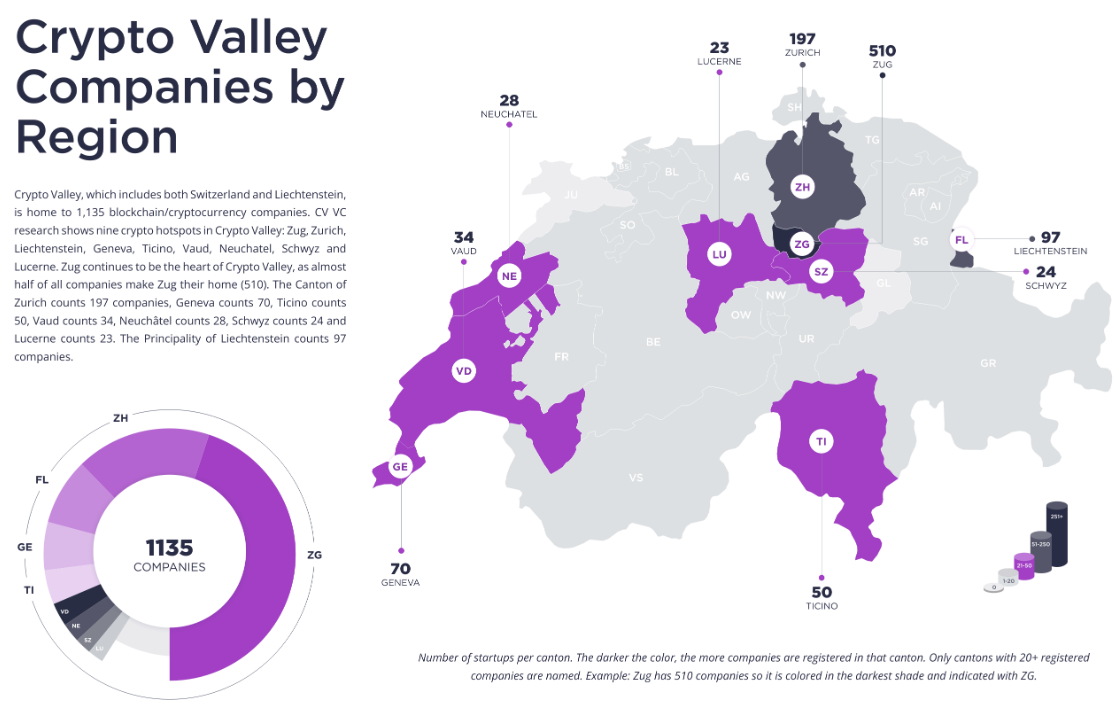While Switzerland has established itself as a safe haven for crypto companies, the regulatory environment in the US remains uncertain. As a result, many ventures are avoiding the U.S. and ceasing operations in the States. An Opportunity for The Crypto Valley?
Switzerland, a landlocked country in the heart of Europe, has been known for centuries as a banking and financial center. Its reputation as a safe haven for financial institutions has made it a popular destination for investors seeking stability and security. In recent years, Switzerland has also become a safe haven for another type of asset - cryptocurrencies. With a favorable regulatory environment, advanced infrastructure, and a growing community of blockchain enthusiasts, Switzerland has become a top destination for crypto companies from around the world.
Regulatory pressure in the USA
While Switzerland has established itself as a crypto-friendly country, the regulatory environment for cryptocurrencies in the United States has become increasingly uncertain. Following the collapse of FTX and other turmoil, the US government is expected to further increase its regulatory pressure on the crypto industry in 2023. This could have a significant impact on crypto companies operating in the country.
The Securities and Exchange Commission (SEC), which is responsible for regulating securities markets in the U.S., has increasingly focused on regulating cryptocurrencies and has cracked down on the crypto industry. However, other agencies such as the Fed, the OCC, and the FDIC are also critical of the sector.
The regulatory environment in Switzerland
Switzerland has a favorable regulatory environment for cryptocurrencies, which has been an important factor in attracting crypto companies to the country. In 2018, the Swiss government introduced a comprehensive framework for regulating cryptocurrencies and blockchain technology. The new regulations created a legal framework for initial coin offerings (ICOs) and other forms of token sales, and established guidelines for anti-money laundering (AML) and customer knowledge (KYC) procedures.
The DLT Act is designed as a blanket decree with which a total of ten federal laws are selectively adapted. In particular, the legal figure of a register value law was introduced in the Code of Obligations, which created a robust legal basis for the digitization or tokenization of assets (rights) such as shares, bonds and other financial assets and their transfer.
The concept of "crypto-tokens" is one of the key features of the Swiss regulatory environment. Under Swiss law, crypto-tokens are treated as a separate asset class from traditional securities, commodities and currencies. This means that they are subject to different rules and regulations, which has made it easier for crypto companies to operate in Switzerland.
Crypto Valley as an infrastructure center
Switzerland has a highly developed infrastructure for financial transactions, which has made it a popular destination for crypto companies. The country has a world-class banking system with a large number of private banks and wealth management firms specializing in serving high net worth individuals and institutional clients.
Due to the settlement of the first blockchain companies in the Zug area from 2013 onwards, the term "Crypto Valley" was soon born in reference to "Silicon Valley". The regulator, which provides the necessary legal certainty for an industry, has already been active since 2015. Internationally, this is very early for the blockchain sector. FINMA first published ICO guidelines, then issued banking licenses.
Over the years, the space has enjoyed new company arrivals and steady development. It has become a center for blockchain and cryptocurrency startups. The Crypto Valley is located in the city of Zug, near Zurich. The University of Basel, as well as later ETH Zurich, were able to attract programmers with their offerings, which were important to further develop blockchain technology. Today, the central Swiss blockchain center is home to numerous blockchain unicorns such as the Ethereum Foundation, Cardano and Uniswap. The Crypto Valley's growth continued in 2022 despite the "crypto winter", according to the biannual CV VC Top 50 Report.

The role of Swiss banks
The Swiss banking sector is committed to the crypto industry in Switzerland and plays a crucial role in its development. Large players such as UBS and Credit Suisse are actively investing in blockchain technology and digital assets. However, not only the big banks, but also smaller Swiss institutions such as Swissquote are getting involved and successfully offering crypto services such as trading, custody and payments. Furthermore, Switzerland convinces crypto companies and investors with its favorable tax system. Cryptocurrencies are considered assets and are taxed accordingly - with a maximum rate of 13% in the canton of Zurich.
Switzerland has played an important role in the development of the FATF Travel Rule and has strongly supported the work of the Financial Action Task Force (FATF). As a founding member, Switzerland has been actively involved in its work since 1989 and has helped shape its policies and standards. Switzerland chaired the FATF from 2012 to 2013 and played a key role in the adoption of the Travel Rule, which was first introduced in 2012 as part of the FATF's revised recommendations.
In 2022, the FATF updated the Travel Rule to include virtual asset service providers (VASPs) in scope and require them to meet the same requirements as traditional financial institutions. This update reflects the industry's recognition as a serious part of the financial system and underscores Switzerland's technology-neutral intent.



